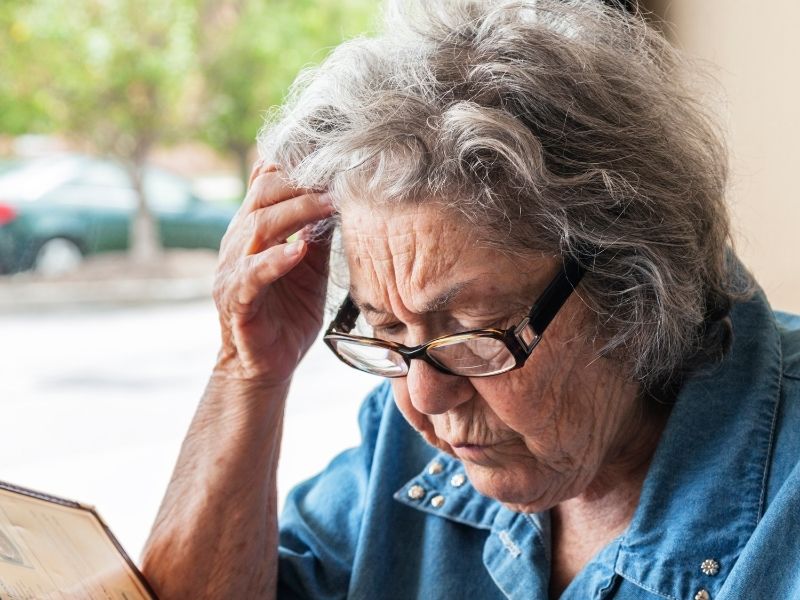
According to the Alzheimer Society of Canada and the Canadian government, there are over 400,000 Canadian seniors living with dementia. If you have a loved one who's dealing with memory loss, you're not alone (and neither are they).
Living with various types of dementia isn't easy. Seniors who aren't yet ready to move into senior care facilities are going to face some challenges as they progress through and beyond the early stages of dementia.
Home care can help. We're here to talk all about home care for dementia so you can make an informed decision about what's right for your loved one. Read on to learn more.
Persons with dementia who want to continue living in their homes would benefit from in-home care, even if they're only in the early stages (as a matter of fact, in-home care is borderline necessary during this period of time to allow the person with dementia to be as independent as possible.
While some people think that hiring caregivers means that the person in the home is less independent, this isn't true. An in-home caregiver provides support and companionship that will allow the person with dementia to retain their independence and stay in their home instead of moving to a retirement facility right away.
Regardless of the form of dementia, this condition is degenerative. Having support early on when the person is still able to care for themself on some level will make the progression of the disease easier.
Once the early stages are over, in-home care becomes even more crucial. It allows the person who is living with dementia to stay safe and healthy despite their condition. There's always someone nearby in the event of an emergency.
There will likely come a time in which it will be necessary to move from in-home care to genuine memory care or assisted living, but for the time being, in-home care is a comfortable option.
So what does in-home care for seniors with dementia have to offer?
Companionship is actually one of the most important parts of in-home dementia care. Many people underestimate just how helpful it can be to have a friendly face nearby.
Many seniors struggle with isolation. Isolation is terrible for both physical and mental health, but for seniors with dementia (even in the early stages), it's hard to break this isolation.
Seniors with dementia often begin to withdraw from social groups and family members. While you can take steps to reconnect, it's helpful for them to have someone nearby who can provide comfort and companionship when they're feeling anti-social.
People with dementia also have a harder time getting around on their own. Because they're no longer able to drive to go see friends, they need someone who can come to them when they're feeling isolated.
An in-home caregiver isn't a replacement for a friend group or close family members, but a caregiver can be a great addition to an already strong social network.

Seniors with dementia can benefit from having someone nearby who can help them with basic household tasks. Even seniors who want to stay as independent as possible may need help tidying sometimes, and that's okay.
In-home caregivers aren't maids, but they can help with normal household tasks that the senior would otherwise be dealing with every day. They often help with meals, mild tidying, and even shopping.
They can do these things for the person with dementia or they can help the person with dementia take care of the tasks together. This will depend on their client's mood and how far the condition has progressed.
Personal care is another important type of care that in-home caregivers can offer their clients with dementia.
People with dementia often struggle to take care of themselves. Things that people can take for granted, like taking showers, using the restroom, and even brushing hair, can get complicated.
Even eating isn't easy.
A good in-home caregiver will identify the areas in which their senior client needs the most help. They can make sure that the client takes their medication on time, they can help the client get dressed in the morning and before bed, and they can even help in the shower.
The caregiver will make sure that your senior loved one is safe, clean, and happy even when they're struggling to take care of themself.

Skilled care is crucial for people who are in the later stages of dementia. Someone who's able to provide skilled dementia care will be a huge asset for your loved one.
People who are able to offer skilled care can perform medical services. Not all caregivers are qualified for this, so make sure to ask around. A caregiver that isn't qualified may be able to get you in touch with someone who is who can make occasional skilled care visits.
These caregivers can dress wounds, provide therapeutic help, and more.
You may have heard about respite care. In this context, respite care is when a professional caregiver takes over for a family caregiver.
When you care for someone with dementia, you're going to have to make arrangements for them for when you're not available. Whether you're going on a trip, you have to work, or you just need a break, a respite caregiver will be there to save the day.
You'll know that your loved one is in good hands even when you can't be there.
Dementia home care can be beneficial for seniors with dementia who aren't yet ready to move into a care home. Caregivers can help with everything from basic household tasks to making sure that your loved one keeps up with their health needs and medication.
If you're ready to start looking into home care for a loved one who's in the early stages of dementia, we want to talk to you. Contact us at Carereq to get more information today.